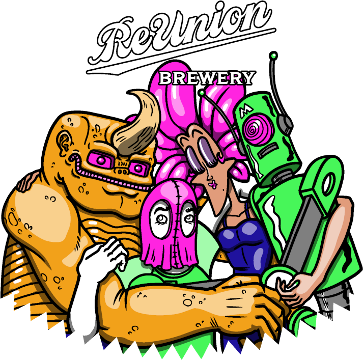
Hurray for the Riff Raff
with Elizabeth Moen and Nadalands | Mission Creek Festival 2019
Event Description
Ticketing: Included with festival pass OR $20 G.A.
Part of Mission Creek Festival (April 2-7, 2019)
Mission Creek Festival is an intimate festival experience presenting the best in independent music, literature, and community programming across venues in downtown Iowa City. Festival schedule and ticketing available at missioncreekfestival.com
Box Office Hours
Tuesday - Friday
10:00 AM - 5:30 PM
(319) 688-2653
info@englert.org
Doors: 6 p.m.
Nadalands: 7 p.m.
Elizabeth Moen: 8 p.m.
Hurray for the Riff Raff: 9:15 p.m.
It had been a successful, if tumultuous, ride for Alynda Segarra, who’s been spreading a new kind of roots-conscious folk music across the country from her adopted hometown of New Orleans. But as far as the Bronx native had come with her band, Hurray for the Riff Raff, there was still a missing link to her story. “The more I toured, ending up in the middle of nowhere bars from Texas to Tennessee,” said Segarra, “I just started feeling more and more like, I don’t belong here, I gotta get back to my people, you know?”
After many years in New Orleans, Segarra found herself getting antsy. Hurray for the Riff Raff had four albums under its belt, with the last one, Small Town Heroes, featuring “The Body Electric,” a song that NPR’s Ann Powers called “The Political Song of the Year” in 2014. Yet even though her musical career had begun by running away from home at 17, busking for survival and honing her craft through dreams of Bessie Smith, Ma Rainey, Memphis Minnie, and Woody Guthrie, Segarra realized she is a Puerto Rican kid from the Bronx with a different story to tell.
To find her way back home, Segarra became the willing vessel for a character she calls “The Navigator,” from which her new album takes its name. She describes The Navigator, a/k/a Navita Milagros Negrón, as “this girl who grows up in a city that’s like New York, who’s a street kid, like me when I was little, that has a special place in the history of her people.” Through The Navigator, the listener hears an ambitiously interwoven, cinematic story of a wandering soul that finally realized she needed to connect with and honor her ancestors.
Segarra quickly went to work with producer Paul Butler, whose work with British soul singer Michael Kiwanuka she deeply admired, to capture the cinematic, old but new quality she wanted. It also meant assembling a core group of percussionists like Kansas City-based Juan-Carlos Chaurand and Devendra Banhart’s drummer Gregory Rogove to play everything from Cuban to Puerto Rican to Brazilian backing beats. The result is an interconnected set of introspective songs, grounded in Segarra’s eclectic rustic root style, yet adorned by elements of son montuno, plena, and a kind of Mink De Ville retro-doowop rock.
Segarra drew early inspiration from cult favorite Rodriguez, a Mexican-American who translated working-class stories from Detroit into powerful rock ballads, and the Ghetto Brothers, an underground band from the 1970s South Bronx who stitched Puerto Rican nationalist messages into a rough-hewn fabric of Santana and Sly and the Family Stone Afro-Caribbean funk. She reached back to her cultural ancestors in the form of the radical political group the Young Lords and the salsa singer Héctor Lavoe. “I would just try to have the rhythm in my head and write the lyrics,” said Segarra. “Then I went back and added everything else, it was like poetry?”
Poetry permeates The Navigator, like when Segarra juxtaposes the feeling of growing up in a box in the sky on the 14th floor of an apartment building with the feeling her father had flying for what seemed like an eternity in a propeller plane from Puerto Rico to New York in the song “14th Floor.” Or when, in the elegiac piano-driven ballad “Pa’lante,” named after the Young Lords newspaper that showed the way forward, she inserts the sampled voice of legendary poet Pedro Pietri reading from his seminal opus “The Puerto Rican Obituary.” The Navigator is a restless observer, perched at the nexus of Allen Ginsberg’s East Village and the Nuyorican Poets Café, confessing the blues and dancing the punky salsa steps of a lonely girl, a hungry ghost.
Like a song-cycle from an imaginary Off-Broadway musical, The Navigator rises from the ashes of loneliness and striving, honky tonks and long walks by the river of urban dreams. From the wistful melancholy of “Life to Save,” to the stubborn resignation of “Nothing’s Gonna Change That Girl,” Segarra’s voice speaks with a husky weariness that coexists with a naïve curiosity. It’s the voice of a rebel who wanted everyone to think she was so tough, and nobody could take her down, but at the same time was yearning for love and magic, some kind of an awakening.Long-time Riff Raff fans should feel at home in The Navigator’s World. There’s always been a little bit of syncopated Caribbean strut to down home rock and roll, Appalachian rags share a similar root with Spanish troubadours and the blues is the same in any language. On The Navigator, Segarra’s voice has never been more soulful, whether she’s decrying urban gentrification on “Rican Beach” or mourning the lies people tell on “Halfway There.” Like the moment we’re living in, The Navigator is as much about the past as it is the future.
With its 12 tracks and its Travelers, Sages, and Sirens, The Navigator comes straight at you from the intersection of apocalypse and hope. This album rides Patti Smith’s high horse while straddling a thin line between love and hate. Segarra may lament the Trumpsters who want to “build a wall and keep them out,” but she knows that, like the outcasts she embraces, “Any day now/I will come along.” There’ll be no more hiding at the dimly lit intersections of class, race, and sexual identity — now we will all come into the light.
“I feel like my generation, through groups like Black Lives Matter, is really focusing on that type of intersectionality — if one of us is not free, then none of us are free,” said Segarra. “The Navigator’s role is to tell the story, tell it to the people who don’t know their own story, so they can be free.”
Elizabeth Moen
With a sultry and intoxicating voice, Elizabeth Moen lures you in. Paired with introspective lyrics that echo both bitter and sweet, her music will captivate you then stay with you. “Moen is one of those rare artists whose voice, from the first moment you hear it, consumes your entire being, doing away with all previous thoughts and concerns, and leaving you short of breath (The Culture Trip).”
On her sophomore LP A Million Miles Away, Moen tackles the complexities that coincide with the basic need for growth. At points lighthearted and somber, and even wry, her lyrics mirror what it’s like to be alive: to wake up each day and attempt to balance the myriad of emotions that go along with being human. In “Triple Scoop” this all perfectly comes together in relation to the age-old problem of sweet, melting ice cream meeting concrete (“Triple scoop sorbet splattered on the sidewalk / Bit of cherry pie hanging off your lip / Why wipe it away, it’s just you and me talking? You’re the cherry on top of my double chocolate chip”). Throughout the album’s eight songs, you are reminded that it’s possible (and ok!) to feel broken and carefree, nostalgic and hopeful, to be utterly content but still have an incredible sense of longing.
Hailing from the small town of Vinton, Iowa located in the middle of the heartland, Moen taught herself how to play guitar as a teenager. It was peer pressure that caused her to write her first song and shortly thereafter, she immersed herself in the writing community of Iowa City while finishing up her studies in French and Spanish at the University of Iowa. Inspired by a mix of modern artists such as Alabama Shakes, Sharon Van Etten, Angel Olsen and Lake Street Dive (who she has supported), and older influences like Stevie Nicks and Joni Mitchell, Moen isn’t locked into a single style.
On A Million Miles Away her songs shift fluidly; Opener “Red” and “Best I Can Do” portray the soulful side of her voice while “Triple Scoop” and “Matilda” recall folky, summer pop. “Don’t Say I” and “Bad to Myself” pull in heavier tones, augmented by her 1968 Gibson ES-340, while the final tracks, “Time is a Shitty Friend” and “Planetarium,” act as closing arguments for the album. The two tracks encapsulate aspects of each preceding track, at times both heavy and soft – equal parts whimsy (“Cuz I’m high and I’m reading about stars and shit”) and sadness (“…and it’s feeding / My thoughts about us together in some other universe”), while the echo of a longing to be “a million miles away” plays out.
A Million Miles Away follows Moen’s 2016 (self-titled EP) and 2017 (That’s All I Wanted LP) releases that took her on tour throughout the Midwest and Western United States alongside Europe. During this time she has acted as direct support for Lake Street Dive, Margaret Glaspy, Lucy Dacus, Becca Mancari, Houndmouth, William Elliott Whitmore (featured on her 2017 LP), Lissie, Buck Meek and has had her music placed in films including the Netflix original movie “Candy Jar.” In support of her new album, Moen embarked on her first national headlining tour with dates in major cities including Chicago, New York City, Los Angeles, San Francisco, Portland, Denver, and Nashville.
Released September 1, Moen’s new album is a testament to its theme: growth. A Million Miles Away is a moving, passionate exploration of internal and external change. In Moen’s own words, “the base of the eight tracks revolves around the idea that there needs to be and will be growth. That can be for someone you love, for yourself, for a new relationship, or for closure from an old one. I’ve grown a lot writing these. I hope that these songs will make you feel that way or another too.”
Nadalands
Nadalands, the solo songwriting project of Fort Collins, Colorado’s John Lindenbaum (The Lonelyhearts, Rust Belt Music), has recorded 12 EPs and a full-length LP since the year 2000. Eager to transition from solo shows to more dynamic live performances, Lindenbaum recruited drummer Benjamin Buttice (Sour Boy, Bitter Girl) and bassist Matt Schild (The Morning Clouds) in 2014. The trio made its recorded debut the following year with The Arbor Day EP, a four-song missive that inspired The Denver Post to call the act Fort Collins’ “best-kept musical secret.” The New Day EP (2018) combined the apocalyptic lyricism of previous Nadalands releases with synthesizers, programmed drums, layered vocals, and ethereal soundscapes borrowed from grime, trip-hop, and drum ‘n’ bass.














